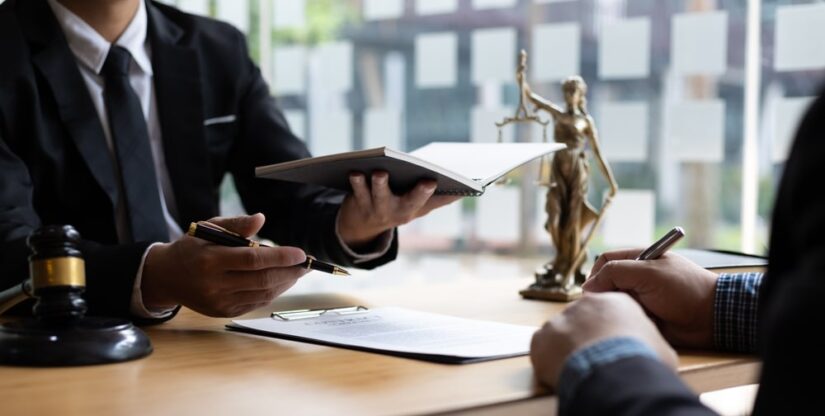What Does Litigation Mean in a Personal Injury Case?
Hipskind & McAninch, LLC is a leading personal injury law firm known for their knowledge and experience in litigation. This blog post will provide a comprehensive explanation of what litigation means in the context of personal injury cases. The content will explore the various stages of litigation, the role of attorneys, and the importance of seeking legal representation.
Definition of Litigation in The Context of Personal Injury Cases
In personal injury cases, litigation is the process of taking your claim to court. This kicks off after negotiations fail to compensate you for injuries caused by another party’s negligence. You, the injured person (plaintiff), file a lawsuit against the responsible party (defendant). Through evidence gathering, motions, and potentially a trial, you aim to convince a judge or jury to award you damages for medical bills, lost wages, and pain and suffering.

Stages if Litigation in a Personal Injury Case
Personal injury lawsuits follow a structured process of different stages. Understanding the process empowers you to participate effectively with your lawyer. Here are the steps involved:
- Filing a Lawsuit and the Role of the Plaintiff
The personal injury litigation process begins with the plaintiff filing a complaint against the defendant, outlining the details of the injury, the circumstances surrounding it, and the legal basis for the personal injury claim. The plaintiff, as the injured party, plays a central role in this stage.
- The Discovery Process and Gathering Evidence
During the discovery phase, both parties exchange relevant information and evidence. This may involve interrogatories, requests for the production of documents, and depositions. Evidence such as medical records, witness statements, and expert opinions is important in building a strong civil lawsuit to support the plaintiff’s claims.
- Negotiations, Settlements, and Alternative Dispute Resolution Methods
Following the discovery phase is an attempt to reach a settlement through negotiations or alternative dispute resolution methods such as mediation or arbitration. These processes aim to resolve the case outside of court, potentially saving time and costs for both parties. Most personal injury cases settle in this phase.
- The Trial Process and Courtroom Proceedings
If a settlement is not reached, the case proceeds to trial. The trial process involves jury selection, opening statements, presentation of evidence, witness testimony, and closing arguments. The plaintiff’s legal team presents their case, and the defendant has the opportunity to defend against the personal injury claims.
- Post-Trial Motions and Appeals
After the trial, post-trial motions may be filed by either party. If either party is dissatisfied with the outcome of the trial, they may seek an appeal, requesting a higher court to review the case for legal errors or irregularities.
While litigation can appear complex and lengthy, having experienced personal injury lawyers by your side can make the process significantly smoother.
Importance of Hiring a Personal Injury Attorney For Successful Litigation
Personal injury litigation can be a challenging journey that requires the expertise of an attorney. According to a study, individuals represented by a personal injury lawyer receive approximately three times the compensation of those without legal representation. In short, you need an attorney for:
- Legal Expertise: Navigating complex legal procedures and maximizing compensation requires in-depth knowledge of personal injury law.
- Evidence Gathering: Attorneys have the resources and experience to gather compelling evidence to strengthen your case.
- Negotiation Power: Insurance companies have skilled negotiators. A lawyer levels the playing field, fighting for fair compensation that reflects the full extent of your damages.
Overall, hiring a personal injury attorney significantly enhances the likelihood of successful litigation and maximizes compensation for the injured party.
Personal Injury Litigation Tips and Advice
A personal injury case can be stressful. If you are involved in personal injury litigation:
Seek Medical Attention Immediately
Your health is the priority. See a doctor to document your injuries and follow their treatment plan. Medical records are critical evidence.
Preserve Evidence
If possible, take pictures of the accident scene, your injuries, and any damaged property. Gather witness contact information and keep copies of car accident reports and police filings.
Consult an Attorney Early
An experienced personal injury lawyer can guide you through the legal process, advise on deadlines, and ensure your rights are protected. The sooner you have an expert on your side, the stronger your case.
Don’t wait – Get Expert Help Today
Need help with your personal injury case? At Hipskind & McAninch, LLC, we understand the complexities of personal injury cases. Our team of dedicated attorneys has a proven track record of success, recovering fair compensation for thousands of clients. We offer personalized attention and fight tirelessly for your rights. Contact us today for a free injury consultation and let us help you get back on your feet.
Category:
Tags: